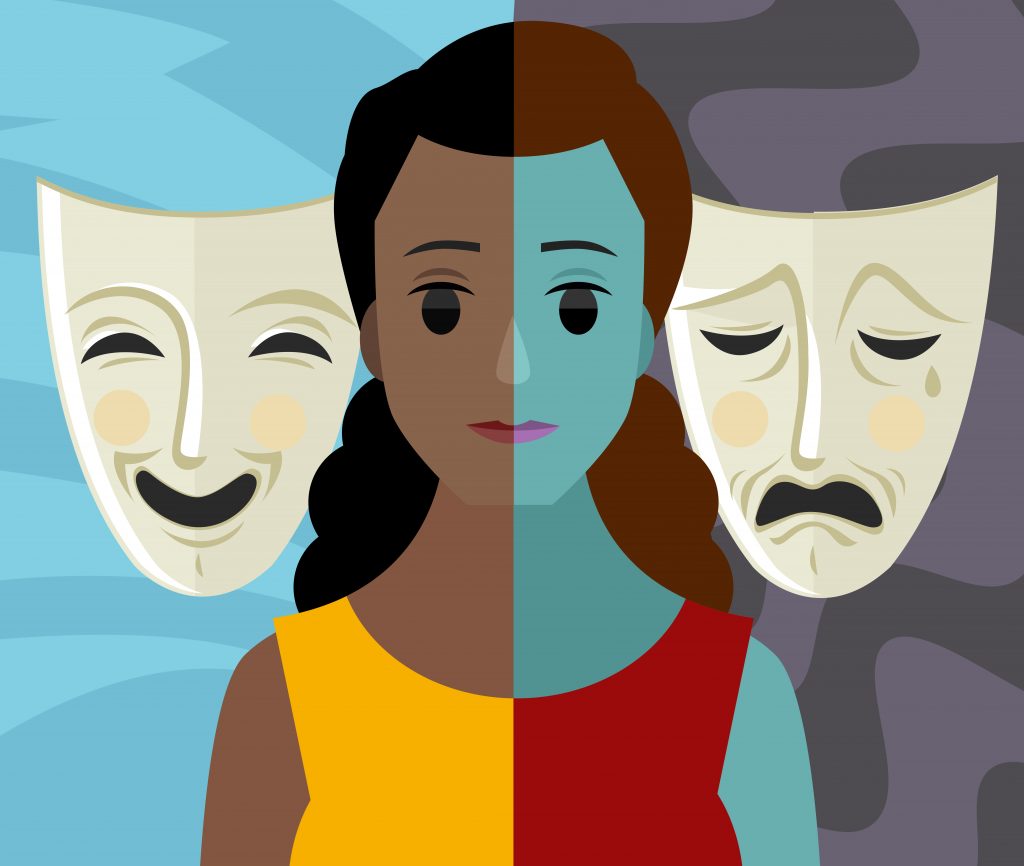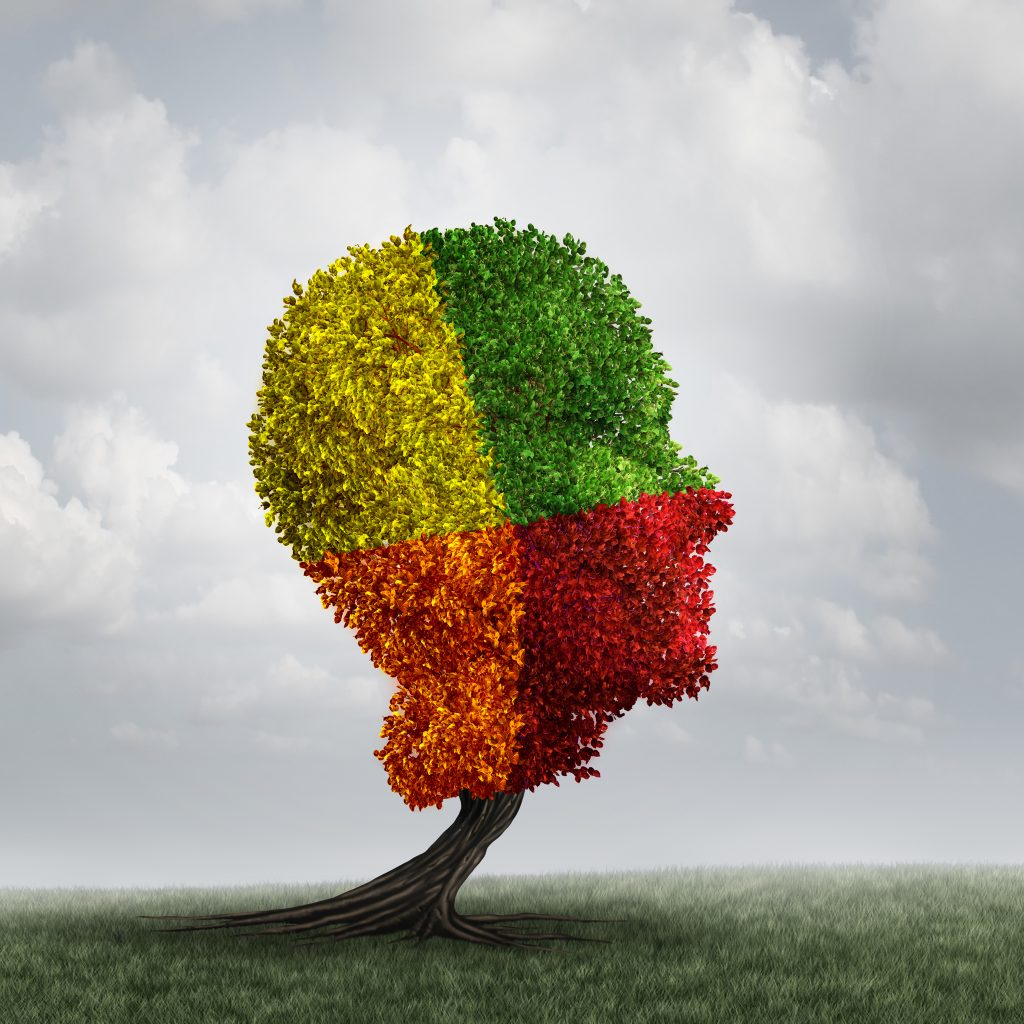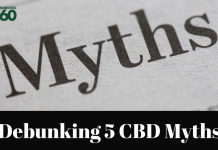
Bipolar disorder is a manic depressive illness characterized by sometimes sudden and unusual changes in mood, energy, activity levels and ability to carry out tasks.
Bipolar patients will go through periods of mania as well as periods of depression. Mania is elation and general over the top mood and behavior. Not all patients experience increased levels of mania however, when this happens it is called hypomania.
There are multiple types of Bipolar disorder, the different types are classified by the various symptoms a patient may experience.
Types of Bipolar
Bipolar I disorder is all about mania. With this type of Bipolar disorder the mania will usually last for about seven days, during which there will be extreme excitement and weird happiness. In some cases, it is so severe that the patient has to be put under medical supervision until the mania passes.
There is also a chance of a depressive period during which the patient will be down and moody. They will most likely express displeasure towards themselves and everything around them or they will just go for days without a word. The depressive period could last for up to two weeks.
It is also possible to go through a sort of mixed array of symptoms. This would lead to a patient flip flopping during the course of the day between mania and depression. Often during this time of duress patients could easily be mistaken for a heavy drug user.
Bipolar II disorder is more low key. It is characterized by hypomania which is a toned down mania. However, there are also periods of depression, similar to Bipolar I. Generally, this type of bipolar is not as pronounced and severe as Bipolar I.
Cyclothymic disorder is rare Bipolar-like condition where patients will experience less severe Bipolar symptoms. Patients will have undergone many periods of hypomania and the same or more of depression. Children are characterized as cyclothymic if they have experienced symptoms for only a year. The fourth type of bipolar hosts every type that does not fit in the three main ones.
To Worsen the Situation
Bipolar disorder patients are also at a high risk of developing ADHD, eating disorders, psychosis and substance abuse problems. In fact, a bipolar patient is more than five times more likely to abuse drugs than a normal person.
Due to the contraindications that come with regular bipolar pharmacotherapies, it has been extremely important to find a worthy treatment for bipolar disorders in the cannabis plant.
The usual drugs are usually mood stabilizers, antipsychotics and antidepressants. However, in order to determine the efficacy of CBD for Bipolar disorders, it would be appropriate to look into these three properties.
Scientific Backing

Scientists have found a biological differences in the brain of bipolar patients. It has also been found that oxidative stress and free radical agents are rampant in the pathology of bipolar disorders, CBD on the other hand, is an antioxidative agent. It hunts down the free radicals and abolishes them.
CBD encourages brain derived neurotrophic factor which is paramount for brain spasticity. CBD also has neuroprotective properties which is handy in such events. In the off chance that cell death occurs due to oxidative stress, CBD promotes neurogenesis.
Some of the biggest scientific discoveries regarding CBD and bipolar disorders were derived from a federally funded research with 133 volunteer bipolar patients. Their neural markers were assessed prior to administration of CBD. The CBD was then administered over the course of a few weeks.
Afterwards, scans and tests were taken, it was found that attention levels, executive functions, verbal fluency, local memory, and learning and retention had improved significantly. The patients also reported experiencing more elevated moods and consistent energy levels.
Another study published in 2012, reiterated that stance. 200 Bipolar patients at Zucker Hospital in NYC were followed for 9 years prior to the posting. It was found that CBD helped their processing speed, attention and memory.
CBD as an Antipsychotic
Often during mania, the patient will have bouts of hallucinations. At times he or she might think they are a famous star and embody a persona, this however, is manifestation of psychosis.
CBD works as a powerful antipsychotic. A 2017 clinical review revealed that CBD can induce brain changes similar to those induced by antipsychotics and antidepressants. A comparative study for antipsychotics and CBD held the same stance. CBD was found to hold the ability to inhibit hyperlocomotion without the side effect of seizures, as was common with the regular antipsychotic medication.
The side effect remained absent even in high dosages. It was also found that it could prevent glutamate toxicity which is a major psychosis marker.
CBD as a Mood Stabilizer
These moods swings can become a real headache if you try to keep up with them. They can become so severe that patients may experience suicidal thoughts. In order to combat these negative thoughts mood stabilizers are often prescribed. Unfortunately, these mood stabilizers can come with a very serious side effect of addiction.
Patients may feel the need to pop a pill every time they feel these negative thoughts. This is where CBD steps in, CBD works to inhibit FAAH. Inhibiting FAAH means that anandamide is being left in the system in droves. Anandamide is responsible for mitigation of mood disturbances.
CBD as an Antidepressant
Depression actually affects a very large population. Because of this, the scientific community has taken up a mandate to find all avenues through which the depression can be approached. Cannabis is a way to ensure the harsh side effects of regular antidepressants are not an issue.
CBD works to augment cortical serotonin and glutamate receptors, this is done by exerting 5-HT1A mechanism. Through this process, CBD is able to affect antidepressant changes without causing any harmful side effects.
Use of CBD by Bipolar Patients
Bipolar patients are in a delicate state and therefore need to follow dosage instruction carefully.
The first thing to keep in mind is that CBD should not forever hold an adjunctive capacity.
The ultimate goal should be to replace the current pharmacotherapies with it. This process must be gradual though.
If a patient decides to smoke or create his or her own CBD product, the strain must be chosen carefully. One should not simply follow the sativa, indica and hybrid directive blindly.
It is important to test out strains until it is found that Mania is bettered and overall mood is calmed. This should be done with little regard to the genealogy of the strain for a more objective process.
The biological structure of a bipolar brain is still under review. Because of this, dosages should be moderate. Be sure to take enough, but not too much. The best way to achieve consistent dosages is to develop a baseline dose for yourself. This is especially important in the first days before the meds are cleared off the docket.
Remember that seeking to gradually wean off meds does not mean that CBD is completely self reliant. There is need to combine the CBD with some sort of integrated treatment approach, meditation and strict routine. These will work together in harmonious symphony, complementing each other, ensuring the patient has managed symptoms from all possible angles.














